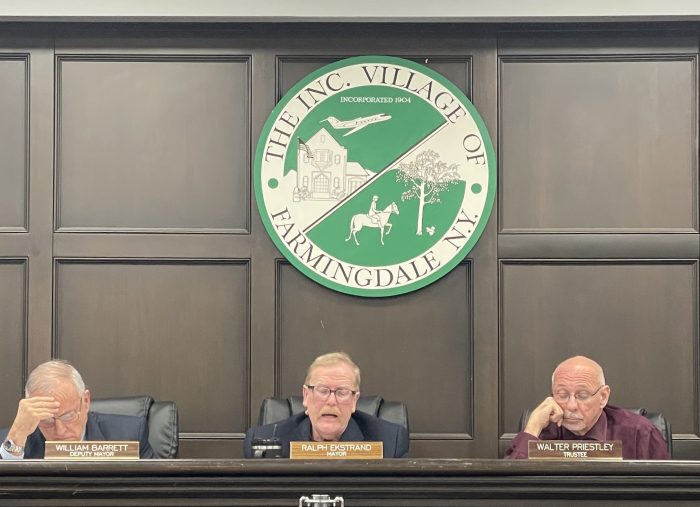On Aug. 22, the Town of Oyster Bay sued Leonard Genova of Massapequa Park, to recover costs it claimed it incurred due what it called “the unlawful and disgraceful acts” of its “disgraced” former town attorney.
The suit was filed in Nassau County Supreme Court.
Genova’s acts in part helped lead to the SEC lawsuit, which named John Venditto, the former longtime supervisor, as well as the town. It was filed in November 2017 and alleged civil violations of the Security Exchange Act. In a separate lawsuit filed March 1, 2018, the SEC also charged Genova with the same violations. The former attorney later settled the fraud case against him, agreeing to permanent injunctions “against violating the charged securities laws or participating in any offerings of municipal securities.”
The charges stemmed from the more than $20 million in loan guarantees that the town allegedly made to aid Harendra Singh, who ran town concessions at the golf course and Tobay and Tappen beaches. According to the narrative of the SEC complaint, the town and Venditto “failed to disclose the indirect guarantees in connection with any of the 26 securities offerings the town issued between August 2010 and December 2015, and the town’s eventual disclosures in connection with four securities offerings issued between December 2015 and December 2016 were materially misleading.”
The SEC claimed that this “unusual decision at the highest levels of the town to go to such great lengths to assist a vendor was a result of [Singh]’s long and close relationship with town and Nassau County officials, which the concessionaire had cultivated, in part, by providing various forms of gifts, bribes, kickbacks, and political support to those officials.”
It charged Venditto and Genova with hiring an outside legal firm in the spring of 2010 to craft agreements that gave the guarantee of the town’s credit and faith to private loans Singh was seeking to make capital improvements at the concession stands. Under the New York State Constitution, public money cannot be used to guarantee private debt.
Venditto was indicted by the U.S. Attorney’s Office for the Eastern District of New York and charged with federal program bribery, honest services wire fraud and securities fraud.
The 27 charges against Venditto were dismissed by a federal jury on May 24 after an 11-week trail that saw Genova testify as a witness for the prosecution after gaining immunity.
Venditto still faces charges filed by Nassau County District Attorney Madeline Singas. The most serious is corrupt use of position or authority. A trial date has not been set.
‘Complex Conspiracy’
In its lawsuit against Genova, the town accused the former attorney of conspiring with Singh and former Deputy Town Attorney Frederick Mei to “create phony amendments that were never authorized by the town board and were indeed unknown to others in town government.” These amendments “contrived to give superficial town support to the loans.” It also accused Singh and Mei of forging signatures to make the “bogus unauthorized amendments appear lawful and binding upon the town.”
Mei, of Bayville, pleaded guilty to taking bribes from Singh in exchange for help in securing the loans. He took a plea deal and during the Venditto-Mangano trial appeared as a witness for the prosecution.
According to the narrative, “Genova’s acts were either intentional and deliberate or the product of gross negligence and sheer incompetence.”
The town seeks to recover Genova’s salary ($140,000 per year) during the six-year period in which “he was acting incompetently, disloyally, and unethically and is further entitled to punitive damages.”
It concluded, “Genova’s incompetent, wrongful, and unethical actions directly caused the expenditures outlined in this complaint, among other damages and expenses.”
In demanding judgment against its former attorney, the town sought “compensatory and punitive damages in amounts to be determined at trial, together with pre- and post-judgment interest at the maximum rate allowable by law; [and] reasonable costs and expenses incurred in this action, including, to the extent applicable, counsel fees.”































